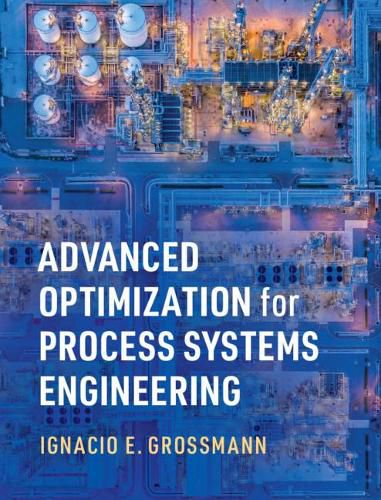Readings Newsletter
Become a Readings Member to make your shopping experience even easier.
Sign in or sign up for free!
You’re not far away from qualifying for FREE standard shipping within Australia
You’ve qualified for FREE standard shipping within Australia
The cart is loading…






Based on the author’s forty years of teaching experience, this unique textbook covers both basic and advanced concepts of optimization theory and methods for process systems engineers. Topics covered include continuous, discrete and logic optimization (linear, nonlinear, mixed-integer and generalized disjunctive programming), optimization under uncertainty (stochastic programming and flexibility analysis), and decomposition techniques (Lagrangean and Benders decomposition). Assuming only a basic background in calculus and linear algebra, it enables easy understanding of mathematical reasoning, and numerous examples throughout illustrate key concepts and algorithms. End-of-chapter exercises involving theoretical derivations and small numerical problems, as well as in modeling systems like GAMS, enhance understanding and help put knowledge into practice. Accompanied by two appendices containing web links to modeling systems and models related to applications in PSE, this is an essential text for single-semester, graduate courses in process systems engineering in departments of chemical engineering.
$9.00 standard shipping within Australia
FREE standard shipping within Australia for orders over $100.00
Express & International shipping calculated at checkout
Based on the author’s forty years of teaching experience, this unique textbook covers both basic and advanced concepts of optimization theory and methods for process systems engineers. Topics covered include continuous, discrete and logic optimization (linear, nonlinear, mixed-integer and generalized disjunctive programming), optimization under uncertainty (stochastic programming and flexibility analysis), and decomposition techniques (Lagrangean and Benders decomposition). Assuming only a basic background in calculus and linear algebra, it enables easy understanding of mathematical reasoning, and numerous examples throughout illustrate key concepts and algorithms. End-of-chapter exercises involving theoretical derivations and small numerical problems, as well as in modeling systems like GAMS, enhance understanding and help put knowledge into practice. Accompanied by two appendices containing web links to modeling systems and models related to applications in PSE, this is an essential text for single-semester, graduate courses in process systems engineering in departments of chemical engineering.